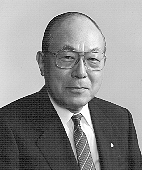
KUME Yutaka
Vice Chairman
Keidanren
As for the first challenge, with the understanding that development of new technologies forms the basis of nation-building, it is imperative to invigorate research and development activities and then to integrate resultant technological advances with a high quality labor force and innovative management. To prevent hollowing out of industry, we basically need to regain international cost competitiveness by structurally narrowing productivity gaps that exist among different industrial sectors. In this connection, new technologies and industry must emerge, and the labor force must be relocated if we are to maintain vigor in the domestic industry in the face of realignment of the international division of labor that inevitably ensues with industrial advances.
The second challenge of creating a new Japanese culture, so to speak, involves establishing something that is genuinely "Japanese-like." Structural reforms beginning with deregulation call for work to transform basic frameworks of politics, administration, economy, and society. What is more, they also entail building on our established culture to create a new and improved culture. It is important to see to it that the nation's philosophies and activities as embodied in politics and the economy are first rate, that they are commonly shared and supported by all of the public far and wide, and that they are perceivable in people's attitudes and actions as something distinctive of Japan. This can be called the dignity of our nation.
As it is people that bring the foregoing matters to realization, the importance of reforming and improving education is self-explanatory. In order to nurture the human resources truly desirable to carry the future of Japan, I feel we must reexamine the present school education which heavily emphasizes acquisition of knowledge, and at the same time we must reflect on ways of implementing home education, and personnel administration at a corporate level.
I think that the Japanese ought to embrace much loftier aspirations and more profound philosophies, and conduct themselves with a keener sense of self-direction. This is called for in the nation's politics, foreign relations, economic circles, and at schools.